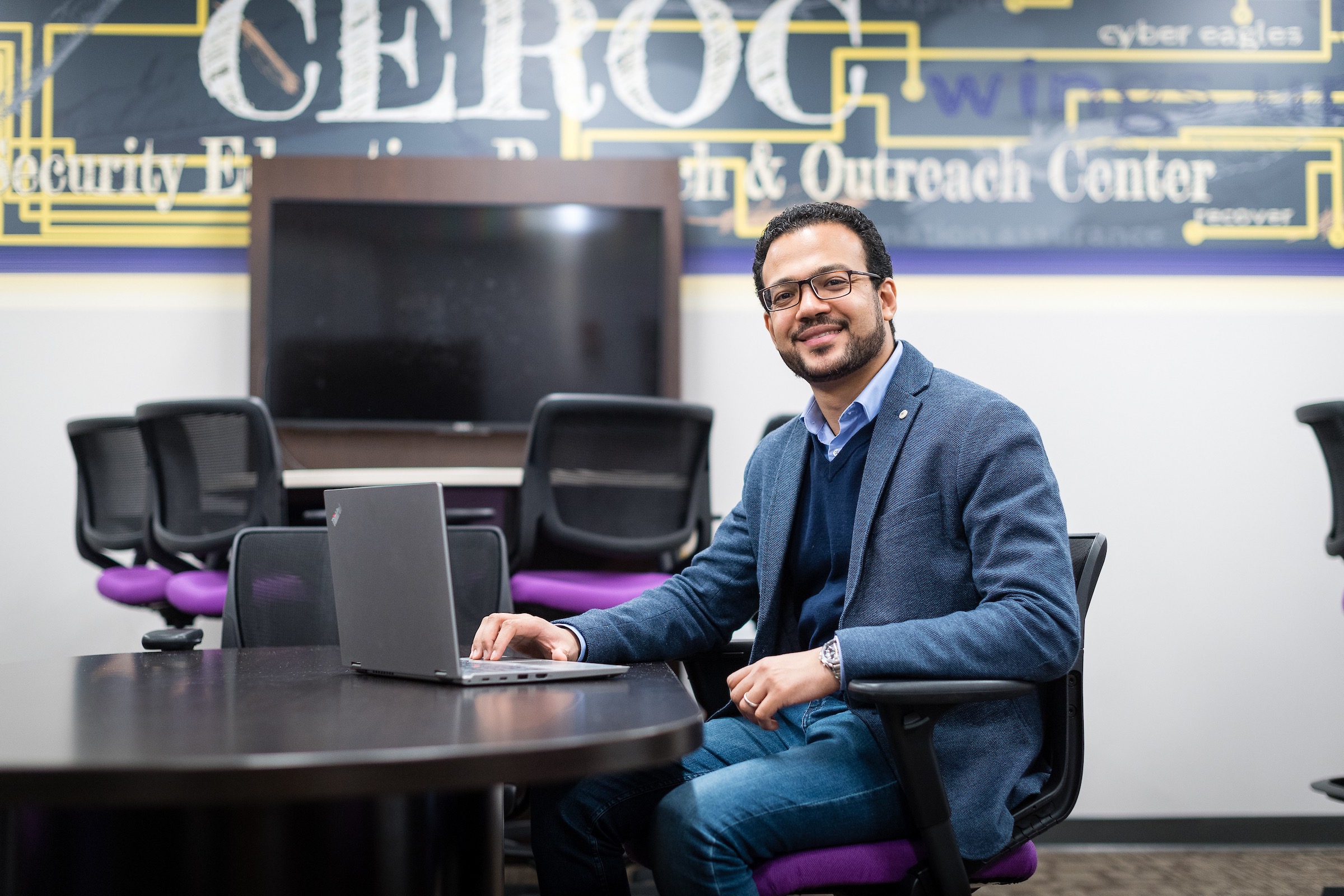New director takes helm of the Cybersecurity Education, Research and Outreach Center at Tennessee Tech

Muhammad Ismail, Ph.D.
Tennessee Tech University has appointed Muhammad Ismail, Ph.D., as its new director
for its Cybersecurity Education, Research and Outreach Center (CEROC), effective Aug.
1.
Ismail, an associate professor of computer science at Tech, was appointed to the position
following a national search. He holds a doctorate in electrical and computer engineering
from the University of Waterloo, Canada and joined Tech in 2019.
Prior to joining Tech, Ismail served as a research scientist and visiting lecturer
for electrical and computer engineering at Texas A&M University in Qatar. His research
includes more than $10 million in grants on applications of AI and quantum information
science in cybersecurity with special focus on critical infrastructure.
“He is lauded as an exceptional researcher and teacher,” said Joseph C. Slater, dean
of the College of Engineering. “Dr. Ismail has the ideal ethos for leading CEROC through
a very competitive market environment to substantially expand the center’s unique
approach to integrating research and workforce development to meet the nation’s cybersecurity
needs.”
Slater also thanked Douglas Talbert, associate chair and professor of computer science,
who served as CEROC’s interim director for the last year. “His leadership during a
time of transition has been essential to CEROC’s continued success,” he said.
CEROC was launched in 2015 by Ambareen Siraj, Ph.D., professor emeritus of computer
science at Tech, to serve a critical void in cybersecurity workforce development.
It was designated a Center of Academic Excellence – Cyber Defense Education by the
National Security Agency that same year, quickly followed by an award from the National
Science Foundation’s CyberCorps Scholarship for Service (SFS) program in 2016, which
aims to strengthen the nation’s cybersecurity workforce by providing scholarships
to students in cybersecurity-related fields. Tech’s program was the first to receive
a CyberCorps SFS program in Tennessee and has since grown to become the largest program
in the state and eighth largest in the country. Ismail has led the CyberCorps SFS
program since June 2022.
CEROC has grown to offer multiple programs, including the dual-enrollment Golden Eagle
Cyber Certificate program, school outreach programs such as GenCyber on Wheels, competitive
student teams and its Cyber Range offering test environments for student learning.
Siraj, who now serves as program director for the National Science Foundation’s CyberCorps
SFS program and Secure and Trustworthy Cyberspace Education (SaTC-EDU) program, said
Ismail is the “ideal leader to advance CEROC to new heights” with his unique research
and teaching background in AI, quantum computing and cyber-physical security.
“While CEROC has been fulfilling regional and national needs in cybersecurity workforce
development for the last decade or so, the need remains—even more so during the age
of AI, working for and against us in this technological world,” she said. “I am confident
that Dr. Ismail’s forward-thinking mindset and his dedication to nurturing the next
generation of cybersecurity professionals will keep CEROC ahead of the curve and continue
to thrive as a regional and national resource in cybersecurity education and workforce
development.”
The impact that Tech has had in building CEROC is “truly special,” Ismail said.
“CEROC has built a great foundation for cybersecurity leadership with unique infrastructure
where research is continuously fed back into student learning, and it’s difficult
to find a cybersecurity center anywhere else that can compare to that,” he said. “I
look forward to building on its legacy, making it increasingly interdisciplinary and
ensuring it remains a hub for cutting-edge technologies for workforce development.”
Ismail plans to keep CEROC at the forefront of the technology that students will face
in their careers, such as the introduction of AI-assisted cybersecurity and the use
of quantum information science. Ismail and other faculty are currently building Tech’s
first quantum network, adding to Tech’s various research test beds that also provide
hands-on opportunities for students to learn cybersecurity in real-world systems,
such as electric grids, wireless networks, smart systems in manufacturing and drones.
“These students are the future cybersecurity experts who will ensure our systems are
ready for what’s to come,” Ismail said. “It’s crucial that they have opportunities
to learn within real-world systems, so that they can take on future cybersecurity
challenges while being ready and confident in a competitive job market.”
About the Cybersecurity Education, Research and Outreach Center (CEROC)
A longtime leader in cybersecurity, CEROC at Tennessee Tech hosts the first and largest
CyberCorps SFS program in the state as well as the national boot camp for the program.
The university (via CEROC) is home to the Golden Eagle Cyber Certificate program,
a dual enrollment program allowing high school students to take college-level cybersecurity
courses contributing to their post-secondary work.
CEROC is recognized as a Center of Academic Excellence in Cybersecurity – Cyber Defense
Education by the National Security Agency. The center focuses on K-20 cybersecurity
education programs, research in emerging cybersecurity topics, and outreach programs
to stakeholders in academia, government, and industry. Learn more at tntech.edu/ceroc or by emailing ceroc@tntech.edu.

